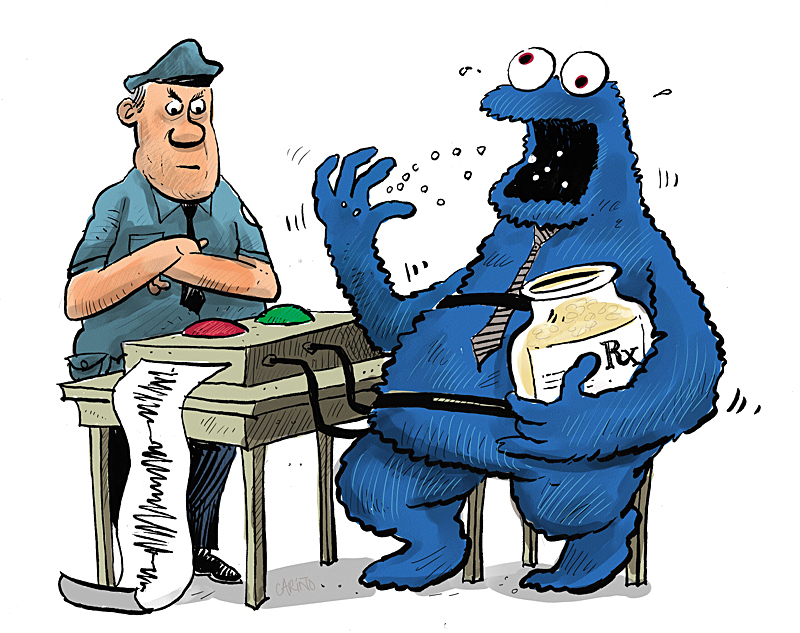The Washington State Patrol needs warm, able bodies to fill its ranks. Faced with a growing number of troopers eligible for retirement, the state legislature approved $5 million to double the number of recruits the WSP trains and eventually sends into the field this year. Typically, state patrol classes include 67 prospective troopers, with one graduating class a year. This year, two classes are planned.
But there’s a problem, in a familiar form: past prescription-drug abuse. According to the WSP, a large number of recruits are being disqualified because they’ve popped pain pills or other prescription drugs in the past without a doctor’s consent.
It’s a felony to take prescription drugs without a prescription—and the state patrol frowns on felonies. While plenty of people are eager to get a job with the WSP, those in charge of hiring new troopers are having a difficult time finding applicants who haven’t broken this law.
According to WSP Sgt. Troy Tomaras, an applicant’s past drug use is almost always discovered somewhere during the vigorous screening process, be it the background check, the one-on-one interviews, or the required lie-detector test. “People try to get through the process at every step,” says Tomaras.
While the WSP doesn’t automatically disqualify anyone who’s unlawfully used prescription drugs, Tomaras says anything that’s classifiable as an abuse of drugs is enough to get an applicant booted. For example, if your mom gave you unprescribed medication as a kid, or a couple of Tylenol 3’s for a toothache, Tomaras says the WSP may look the other way. But if the drug use was obviously abuse—like popping Adderall in college to stay up and study, or getting loaded on Vicodin and Coors Light and watching pay-per-view UFC—that’s going to be a big problem.
“We take a common-sense approach,” says Tomaras of deciding whether or not an applicant’s past drug use disqualifies them. “We take a look at every single case and make a decision.”
Is the disqualification problem growing? While Tomaras says there hasn’t necessarily been a definitive increase, he does say that lately it “seems pretty prevalent . . . I’d attribute it to a lack of education in terms of prescription drugs,” he says. “People don’t think about [prescription-drug abuse] the same way they think about marijuana, cocaine, methamphetamine, or other drugs.”
With recruitment efforts in full force, and faced with a growing number of vacancies by attrition (currently, Tomaras says, 88 troopers are eligible for retirement, and that number will grow to 92 by year’s end and to 216 by 2015), the WSP has made an effort to get the word out about prescription-drug abuse and the fact that it will prevent you from getting a job on the force. But Tomaras makes clear that’s not the agency’s only concern.
“First off, it’s a public-safety message,” he says of efforts to educate the masses about the dangers and possible negative ramifications of prescription-drug abuse. “If you take someone else’s medicine, it’s a crime. We really want people to be safe.”
“We’re trying to get the best people possible to serve the people of the state of Washington,” continues Tomaras regarding the WSP’s recruitment efforts, which aren’t being helped by nonchalant pill-popping. “We want people who foster the public’s trust.”








